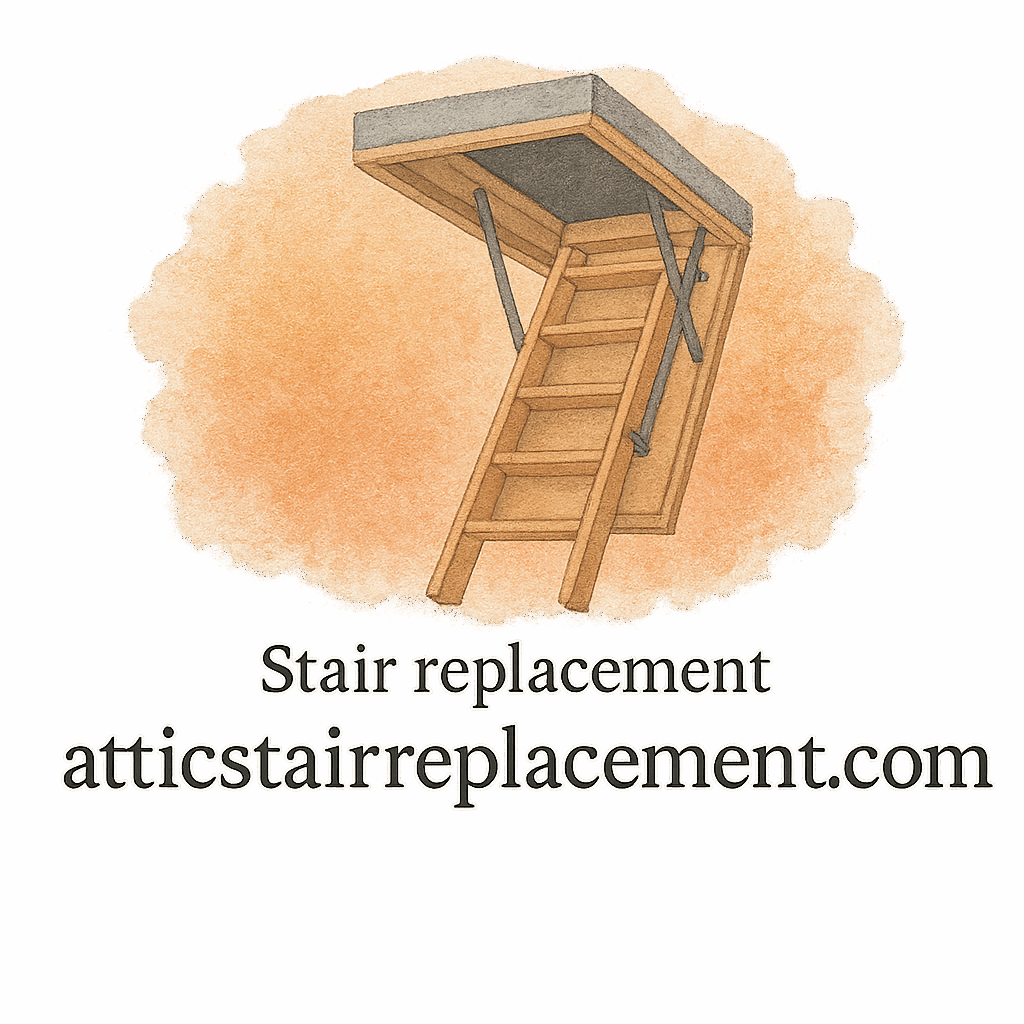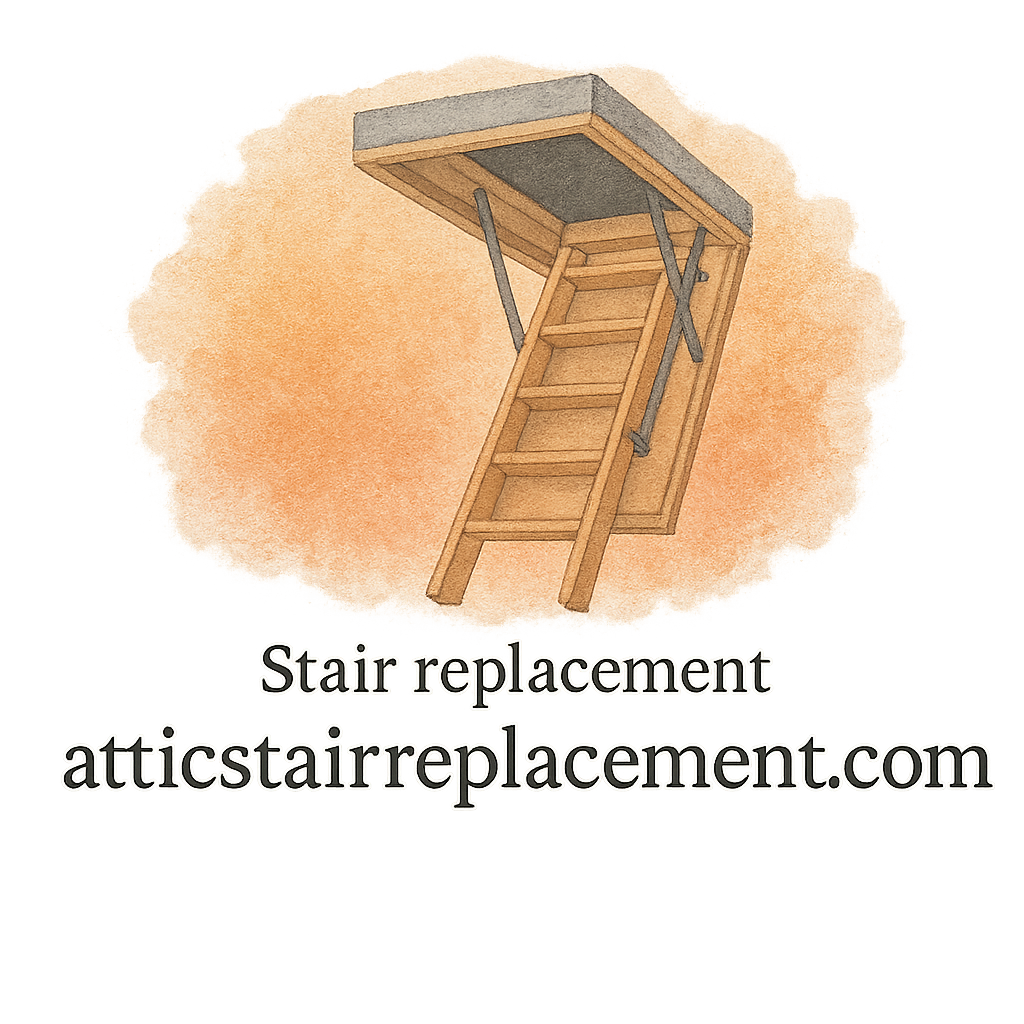Introduction: Why Eco-Friendly Attic Stair Kits Matter
Thinking about upgrading your attic stairs? You’re not alone. Many homeowners are taking this small but impactful home improvement project seriously—especially when it comes to sustainable choices. Choosing an eco-friendly attic stair replacement kit not only benefits the planet but can save you money and reduce your home’s carbon footprint.
Whether you’re remodeling or just replacing outdated stairs, there’s a green solution that fits your needs. Let’s explore your best options.
What Makes an Attic Stair Kit Eco-Friendly?
So, what qualifies a stair kit as environmentally friendly? It’s more than just a label—it’s about the materials, energy efficiency, and low emissions throughout the lifecycle.
Sustainable Materials
Eco-friendly kits often feature sustainably harvested wood or recycled aluminum. These materials reduce environmental impact and often last longer, making them a smart investment.
Energy Efficiency
Insulated stair kits prevent heat loss, helping maintain your home’s temperature. This cuts down on energy use and directly impacts your utility bills.
Low-VOC Finishes
Volatile organic compounds (VOCs) are harmful to both humans and the environment. Eco-conscious attic stair kits use low-VOC paints and adhesives, making them safer for your family and the planet.
Key Benefits of Eco-Friendly Attic Stairs
Eco-friendly doesn’t just mean green—it also means smart. These kits come with real, tangible benefits:
Lower Utility Bills
Well-insulated attic stairs stop heat from escaping during winter and keep it out during summer. That’s a win-win for your HVAC system and your wallet.
Long-Term Durability
Sustainable doesn’t mean flimsy. Many eco-friendly kits are built with high-quality, durable materials that stand the test of time.
Reduced Environmental Impact
From manufacturing to installation, these stair kits leave a smaller carbon footprint.
Things to Consider Before Buying an Attic Stair Replacement Kit
Not every kit is created equal. Keep these key factors in mind before buying.
Weight Capacity & Durability
Make sure the ladder can handle the weight of whoever will be using it, plus any items they might carry. Look for tags like heavy-duty or strong.
Ease of Installation
Some kits are DIY-friendly, while others may require a professional contractor. Consider your skill level and available tools.
Budget Considerations
Eco-friendly doesn’t always mean expensive. You can find great kits on a budget if you know where to look.

6 Eco-Friendly Attic Stair Replacement Kits You Should Know
Now, let’s get into the good stuff. Here are six attic stair replacement kits that are both eco-conscious and user-approved.
1. Werner EcoWood Folding Attic Ladder
Features & Benefits
- Made from FSC-certified wood
- Spring-assisted design for easy opening
- Rated up to 300 lbs
Sustainability Factor
Werner uses responsibly sourced wood and non-toxic finishes, making this one of the most eco-conscious models on the market.
2. Fakro LST Thermo Insulated Attic Ladder
Features & Benefits
- Heavy-duty steel construction
- Built-in insulation seal
- Folding scissor design saves space
Sustainability Factor
The insulation ensures optimal energy conservation—ideal for climates with extreme temperatures.
3. Louisville Ladder Elite Wood Attic Ladder
Features & Benefits
- Sturdy pine frame with slip-resistant steps
- 250 lb capacity
- Easy installation
Sustainability Factor
Manufactured with durable wood and low-VOC adhesives, this model supports both your attic access and environmental goals.
4. Fantozzi Eco-Compact Aluminum Ladder
Features & Benefits
- Lightweight but strong
- Corrosion-resistant aluminum
- Compact folding design
Sustainability Factor
Made with 80% recycled aluminum and no harmful coatings, this ladder is ideal for modern eco-friendly homes.
5. Rainbow Attic Stairs GreenStep Model
Features & Benefits
- Heavy-duty construction
- Premium insulation layer
- Wood from certified sustainable forests
Sustainability Factor
This model is designed specifically for eco-aware users who don’t want to compromise on strength.
6. Century GreenGuard Foldable Stair Kit
Features & Benefits
- Non-slip steps
- Weather-sealed frame
- Up to 350 lbs capacity
Sustainability Factor
Constructed from a blend of recycled steel and sustainably farmed wood, this kit is a powerhouse of green engineering.
How to Install an Eco-Friendly Attic Stair Kit (DIY Guide)
If you’re the hands-on type, you’ll love that many of these kits are perfect for DIY installation.
Tools You’ll Need
- Power drill
- Level
- Hammer
- Measuring tape
- Screwdriver
Step-by-Step Process
- Measure the ceiling opening accurately.
- Remove the old attic stair unit.
- Fit the new frame into the ceiling joists.
- Secure with screws and brackets.
- Test the folding and locking mechanisms.
- Seal around the frame to prevent air leaks.
- Clean up, and admire your handiwork!
For more tips, visit our DIY guide.
Maintenance Tips for Long-Term Performance
Don’t set it and forget it. Keep your attic stairs in peak shape with regular maintenance.
Regular Inspections
Check hinges, bolts, and seals twice a year. Catching small problems early prevents hidden costs down the line.
Cleaning & Lubrication
Use a soft cloth and mild cleaner to wipe down steps. Apply silicone lubricant to moving parts to keep everything smooth.
For more, see our maintenance and repair guide.
Final Thoughts: Making the Sustainable Choice
Going green with your attic stair replacement might seem like a small gesture, but it’s a powerful one. Whether you’re driven by environmental impact, utility savings, or just wanting a more efficient home, eco-friendly attic stair kits check all the boxes.
Ready to start your home improvement journey? Explore our expert advice section for more insights, or dive into real product reviews from homeowners like you.
FAQs
1. What’s the most energy-efficient attic stair kit?
The Fakro LST Thermo is often praised for its high insulation rating and tight seals.
2. Can I install an attic stair kit by myself?
Yes! Many eco-friendly models are DIY ready. Just follow the instructions carefully.
3. Are eco-friendly attic stairs more expensive?
Not always. Some are even budget-friendly, especially if you factor in long-term energy savings.
4. How do I maintain my attic stairs?
Perform regular maintenance, check for wear and tear, and lubricate moving parts as needed.
5. Do I need a permit to replace attic stairs?
In most areas, no, but it’s always best to check local building codes or consult a contractor.
6. What if I make mistakes during installation?
Mistakes happen. Check our guide on common DIY mistakes and how to prevent them.
7. Where can I find more eco-friendly home projects?
Visit our full guide section for sustainable home projects, remodels, and renovations.


